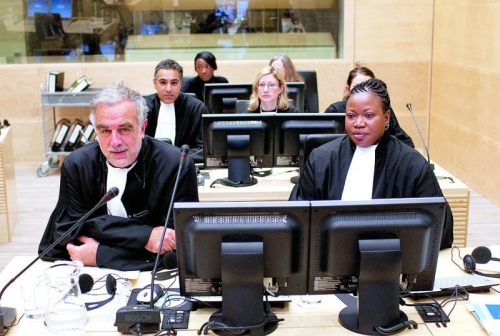×
The Standard e-Paper
Smart Minds Choose Us

The dismissal of the application seeking the extradition of lawyer Paul Gicheru and colleague Philip Kipkoech Bett to the International Criminal Court is almost the final blow to Prosecutor Fatou Bensouda’s cases in Kenya.
The two lawyers still have a live warrant issued by the ICC on March 10 2015 facing them but questions now abound about how it can be executed.